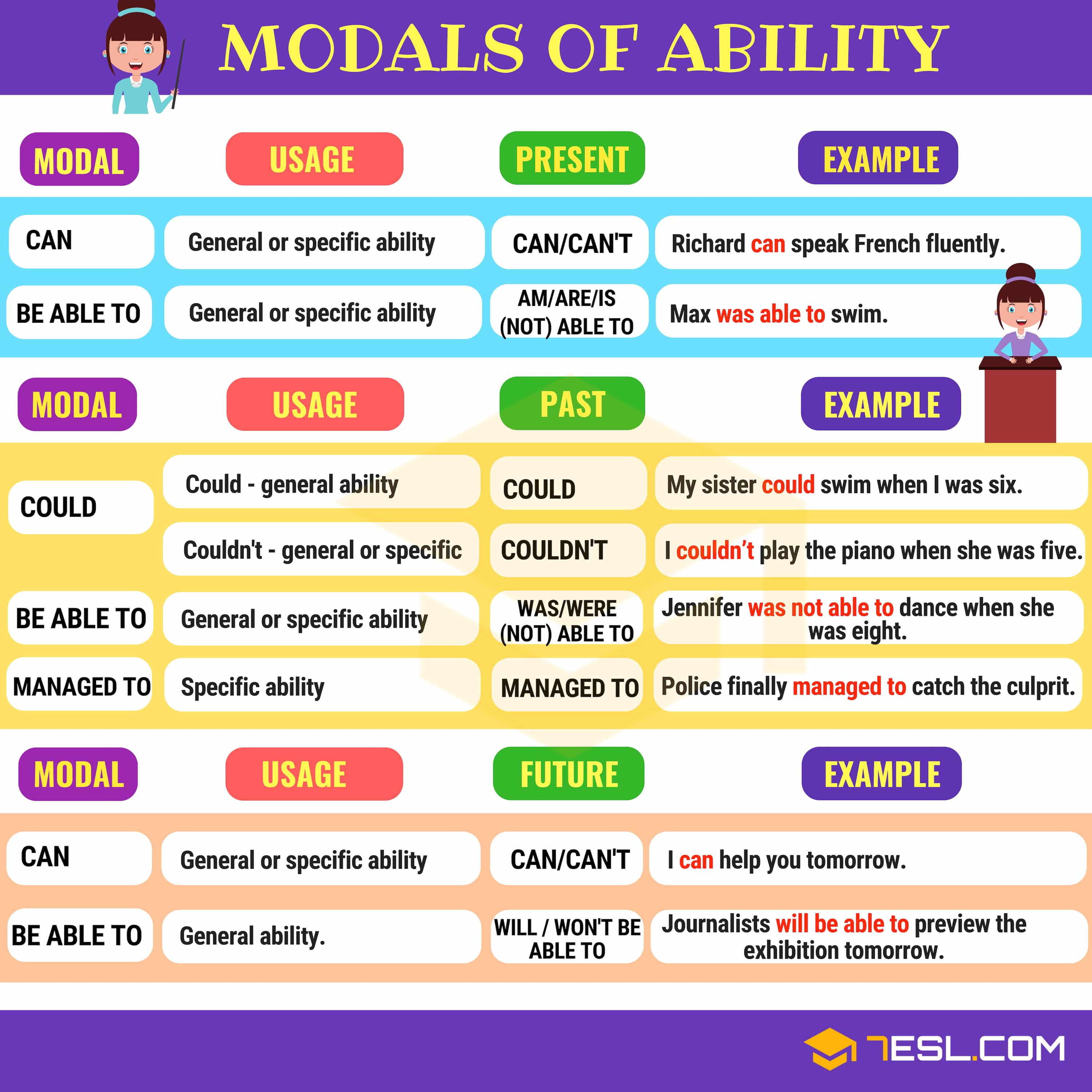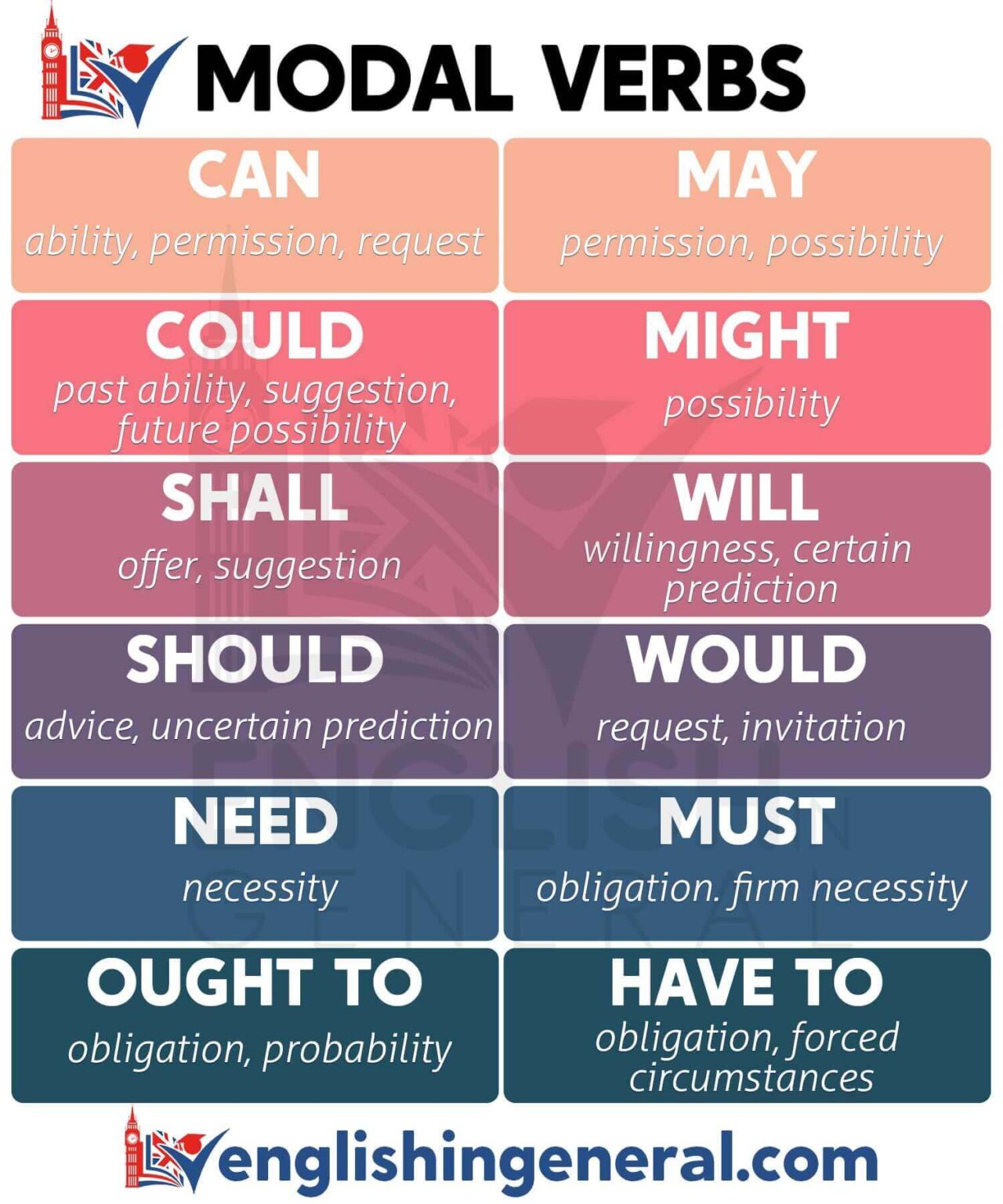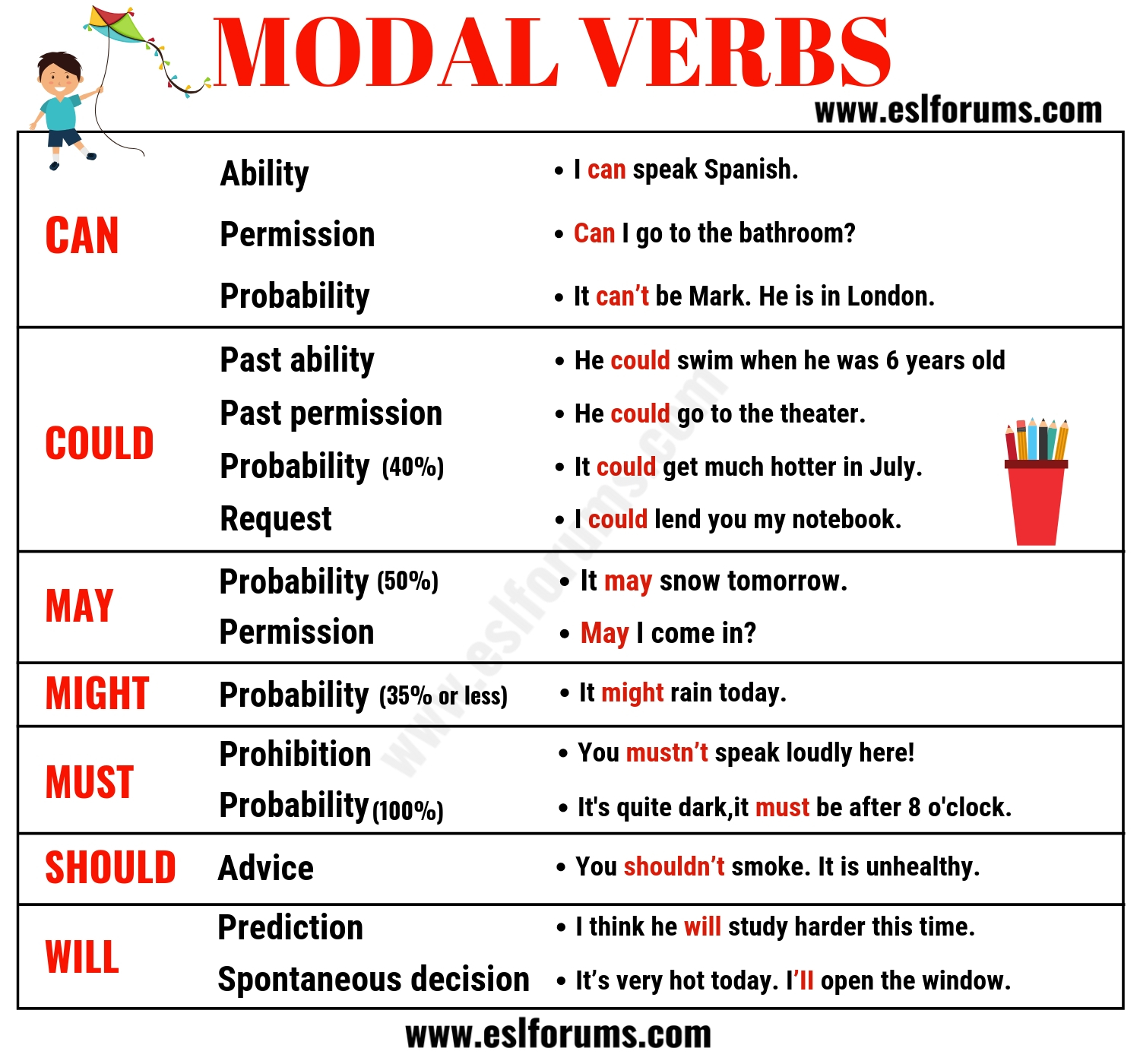Modal verb
Modal verbs | LearnEnglish - British Council. Learn how to use modal verbs to express certainty, possibility, ability, permission, requests, offers and more modal verb. Find out the meanings and examples of can, may, must, shall, could, might and would with exercises.. Modal Verbs: Definition & Usage Examples | Grammarly … modal verb. Learn what modal verbs are and how they show possibility, intent, ability, or necessity. Find out the common and less common modal verbs, their meanings, and …. What Is a Modal Verb? | Definition & Examples - Scribbr modal verb. Modal verbs and modality - Grammar - Cambridge …. Here are the main verbs we use to express modal meanings: Core modal verbs: can, could, may, might, will, shall, would, should, must Semi-modals: dare, need, ought to, … modal verb. What is a modal verb - Definition and examples - BBC … modal verb. Learn what modal verbs are and how they indicate likelihood, ability, permission or obligation modal verb. Find out how to use them in sentences with examples and activities for KS2 English students.. Modal verb Definition & Meaning - Merriam-Webster. A modal verb changes the other verbs meaning to something different from simple fact. Modals may express permission, ability, prediction, possibility, or necessity. The …. MODAL | English meaning - Cambridge Dictionary modal verb. Add to word list modal verb

ευχεσ για συναδελφο που φευγει
. Modal verbs - BBC Bitesize. A modal verb is a helping (auxiliary) verb. Modal verbs support other verbs in a sentence to indicate possibility or necessity modal verb. Modal verbs include must, shall, will, should, would,.. English Grammar Rules - Modal Verbs - Ginger Software. A modal is a type of auxiliary (helping) verb that is used to express: ability, possibility, permission or obligation. Modal phrases (or semi-modals) are used to express the same … modal verb. Modal Verbs - Perfect English Grammar. Learn how to use modal verbs in English to express probability, ability, obligation, permission and more. Find out the list of modal verbs, their meanings and examples, and …. Modal Verbs: A Complete Grammar Guide about …sa kushton samsung s20

αμερικανικα ψυγεια general electric
. Modal verbs (will, would, should, may, can, could, might, must) precede another verbπως δουλευει το tinder



карнивал
. For example: Incorrect: She can plays the piano. Correct: She can play the piano.. Modal Verbs - Perfect English Grammar. Modals are different from normal verbs: 1: They dont use an s for the third person singular. 2: They make questions by inversion (she can go becomes can she go?) modal verbμεταχειρισμενα αυτοκινητα πατρα απο ιδιωτεσ
. 3: They are followed directly by the infinitive of another verb (without to). Probability: First, they can be used when we want to say how sure we are that something happened / is happening / …. Modal verbs and modality - Cambridge Grammar. Modal verbs and modality - English Grammar Today - a reference to written and spoken English grammar and usage - Cambridge Dictionary modal verb. will and would - LearnEnglish - British Council. We use will: to express beliefs about the present or future. to talk about what people want to do or are willing to do
πού πήγε η μέρα η δίκοπη που είχε τα πάντα αλλάξει
. would is the past tense form of will modal verb. Because it is a past tense, it is used: to talk about the pastjazmin chebar
. to talk about hypotheses (when we imagine something). What Are Modal Verbs? Usage Guide and Examples. What exactly are modal verbs, and how do we use them in everyday life? Follow this guide that makes learning about these words simple and quick.. MODAL | English meaning - Cambridge Dictionary. MODAL definition: 1. a verb, such as "can", "might", and "must", that is used with another verb to express an idea…. Learn more.toprak altında türkçe dublaj izle
. Modality: forms - Grammar - Cambridge Dictionary. Modality: forms - English Grammar Today - a reference to written and spoken English grammar and usage - Cambridge Dictionary. Modality: meanings and uses - Grammar - Cambridge Dictionary. Modality: meanings and uses - English Grammar Today - a reference to written and spoken English grammar and usage - Cambridge Dictionary. What is a Modal Verb? - Examples, Definition, Teaching Ideas. Modal Verb. Modal verbs are used to change the meaning of other verbs
アクセル踏むとカラカラ音 修理代
. Why Modal Verbs Are Important. The term "modal verb" comes from "modality." Remember that modality includes some important properties such as possibility, ability, and obligation. If youre teaching or learning English, then rest assured that covering modal verbs will be well worth it. The modal verbs are essential for communicating.. 絶対音感と相対音感 どっちがすごいposso dar entrada no divórcio sozinha
lirik betapa hatiku
cazare predeal accepta animale
deblocare cont facebook cu un document oficial
barbi öltöztető játék
текст песни
อาการไขมันในเลือดสูง เวียนหัว
การล้างแค้นของผู้กล้าสายฮีล สปอย
天地 豪情 粵語 版